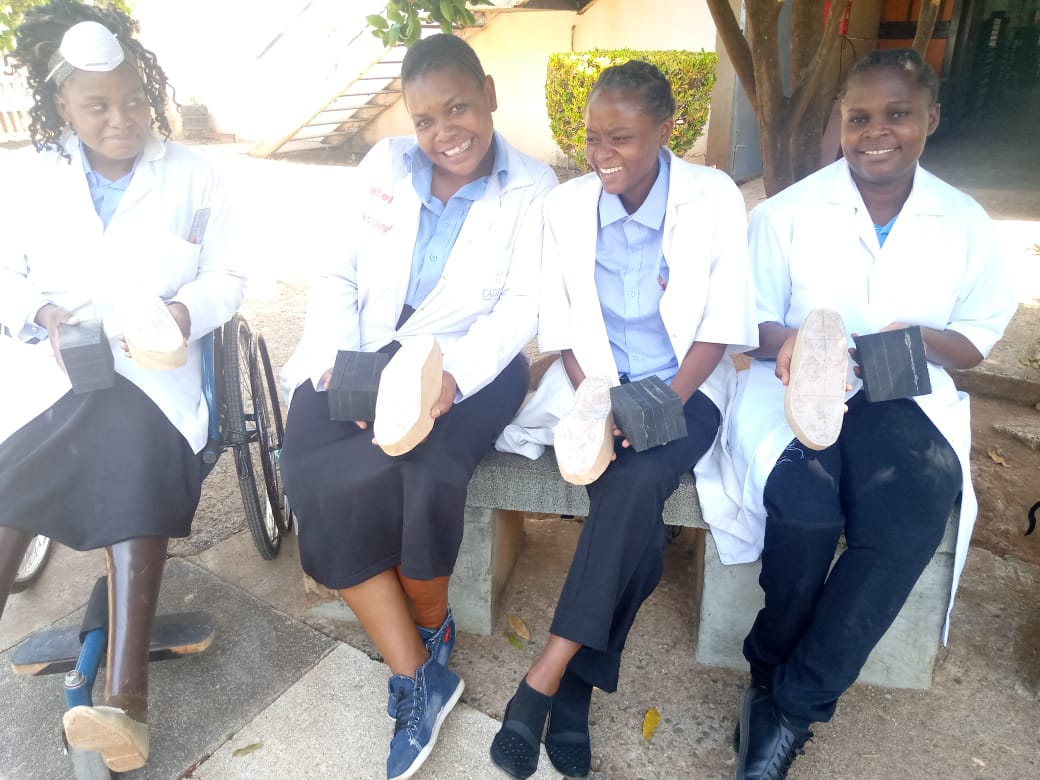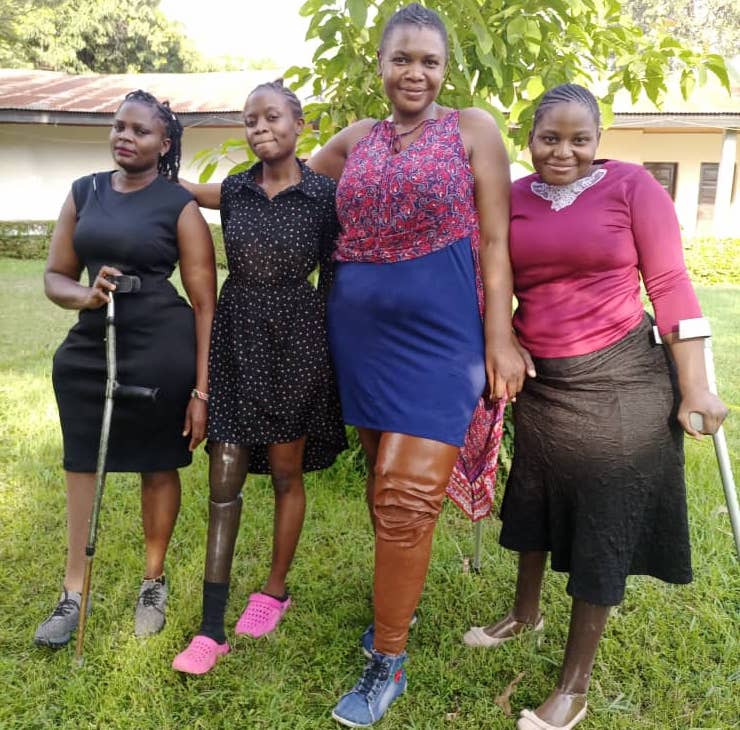
Legs4Africa work closely with multiple hospitals, limb centres and clinics across sub-Saharan Africa, and identified a lack of women in the field. The charity found that gender and disability often creates significant barriers, particularly when combined with low income backgrounds and the different stigma present in many countries. The programme allows existing prosthetists to expand their skills, but also provides new opportunities to a more diverse range of people.
The project offers scholarships in prosthetic technology to enable women with limb-loss to increase their employability and build careers in the prosthetic industry, while challenging norms and stigma around gender and disability.
Through the programme, Legs4Africa, in partnership with the Tanzania Training Centre for Orthopedic Technologists (TATCOT), provides fully-funded places on their one year Certificate Course in Lower-Limb Prosthetics, including tuition, flights, accommodation and living expenses.
And the 2020 cohort, who were the first ever recipients of the scholarship, have just graduated!

Ophia Bwanali is 35, from Zimbabwe and has previously worked as a music teacher. She was in a car accident in 2007 and ended up losing most of her left leg due to the doctors in the hospital being on strike.
“Being a prosthetist has made me realise it is very easy to put a smile on a face. I am a prosthetist; I know how to fabricate a prosthetic device. I am an amputee; I understand how it feels like to have one’s mobility restored.”
Molline Masango is 32, from Northern Gokwe, a remote area in Zimbabwe. She lost both her legs in a fire when she was 6 months old. She has previously worked in cosmetics and healthcare manufacturing, and enjoys wheelchair basketball.
“Through TATCOT, I have managed to meet other female amputees around Africa. We have discussed issues concerning women with disabilities in general and female amputees in particular. We often discussed how best we can encourage and change the lives of amputees through this profession, and created strong social networks with other prosthetists.”
Winnie Mukunta is 24, from Livingstone City, Zambia. She lost her right leg in a road traffic accident 9 years ago, and has previously worked as a teacher.
“There is an enormous need to develop the field of prosthetics in my country because of the high number of people with disabilities and we have few professionals. Through TATCOT I have been able to lay a foundation in achieving greater things.”
Judith Akinyi Ajwala is 31, from Siaya, Kenya, and has a background in social work and mobilization of people with disabilities. She has been an amputee for 14 years since developing a bone infection due to osteomyelitis.
“Legs4Africa’s scholarship winners have all proved the fact that disability is no longer an inability.”
They have made lasting friendships with each other and benefitted from the company of women who share their experience, as well as the networking opportunities provided by studying at one of the main P&O institutions in Africa.
For some of them this was the first time they had ever left their home country, so they got to spend a year seeing the country, experiencing a new culture and meeting lots of people. They also are now members of Legs4Africa’s mobility network, which will invest in their future, follow their careers and continue to provide opportunities for their professional development.
Stefanie Hadley, Project Lead, Legs4Africa, said, “This project can amplify the voices and capacity of women with limb loss to become role models – whether that’s for women, for people with limb difference, for people with disabilities – and the impact that this increased visibility can have for marginalised groups and communities could be beyond what we can measure with reports and statistics.”
The next cohort of women are due to start their training on 08 November.
